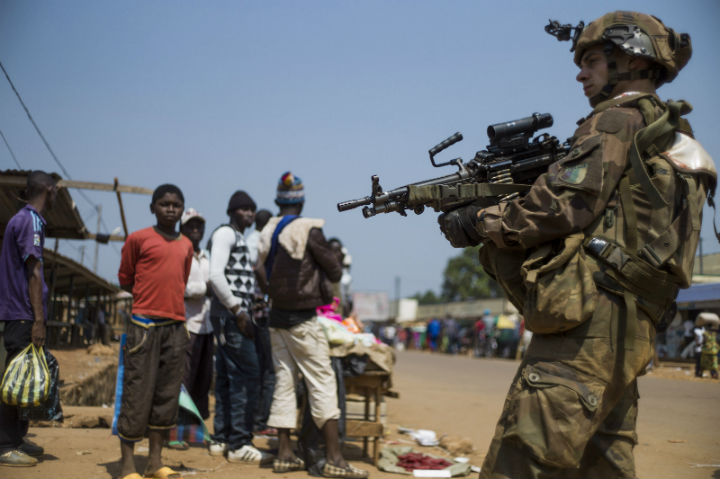The United Nations High Commissioner for Refugees (UNHCR) on Tuesday deployed more staff to Central African Republic‘s capital city Bangui in the wake of violence that displaced about 210,000 people in the last two weeks.

The clashes between Christian militias and Muslim rebels — ex-members of the Séléka rebel alliance that overthrew the government in March — have spawned a humanitarian crisis some fear will spiral into a mass atrocity.
“Our staff are reporting continued shooting and a mood of widespread fear,” UNHCR spokesperson Adrian Edwards said.
READ MORE: UN chief calls for end to CAR ‘bloodshed’
“At Bangui airport, we have had to temporarily suspend aid distribution because of security incidents, some of which are related to sectarian violence,” Edwards said in Geneva.
Fighting between Christians and Muslims flared up almost two weeks ago, right around the same time as a new contingent of French troops arrived in the country as part of a UN-backed mission to help stabilize the country.
France 24 reported Tuesday other European countries are set to join the peacekeeping efforts in the country.
Foreign Minister Laurent Fabius said two of the five countries that are already helping France with logistics “are currently considering” aiding French and African Union troops on the ground.
Fabius said the United Kingdom, Belgium, Germany, Poland and Spain, but he did not specify which of those countries may assist in the mission.
READ MORE: CAR crisis may not be next Rwanda, but still needs response: Dallaire
Canada has pledged an additional $5 million to assist with the humanitarian crisis. The Canadian government already contributed $6.95 million to aid agencies working in CAR this year, including the International Committee for the Red Cross, Doctors Without Borders and the UN World Food Programme.
The UN has also warned of a pending food crisis in CAR.
In a statement on Monday, the UN Food and Agriculture Organization (FAO) said the conflict has left seeds for new crops in “short supply due to looting and because people have had to eat them instead of saving them for planting.”
“Desperate farmers have been selling tools and livestock so that they can feed their families, which leaves them without means of making an income, and raids on livestock and agricultural equipment have been widespread,” FAO Emergency and Rehabilitation Director Dominique Burgeon said in Rome on Monday.
The FAO reports the prices in Bangui have risen significantly since the start of the year, with the price of maize going up 31 per cent and the price of millet increasing 70 per cent in some areas.
“Failure to assist them will bring a serious deterioration of the food security situation and a massive need for protracted food assistance,” said FAO Regional Representative for Africa Bukar Tijani.
READ MORE: Central African Republic’s ‘forgotten human rights crisis’ worsening
The UN estimates more than 600,000 people have been forced to leave their homes in the last year, while a further 70,000 have fled across borders into neighbouring countries.
As many as 2.3 million children are estimated to be affected by continuing violence in conflict-stricken Central African Republic, including those being recruited as child soldiers.
Last week, Canadian Senator Romeo Dallaire drew comparisons between the situation in CAR and the genocide in Rwanda, saying, “When a country is imploding and they go and use youths as principal weapons of war it becomes very difficult to control and you wind up with mass atrocities and potentially — potentially — genocide.”
Dallaire said the sectarian violence in the country may not be genocide, but that doesn’t mean the world shouldn’t act to stop a mass atrocity.
“Going from mass killings to genocide is only a step, it’s a sort of redefinition of a catastrophic failure that’s ongoing,” he explained.
With files from The Associated Press and Global’s Amy Minsky




Comments